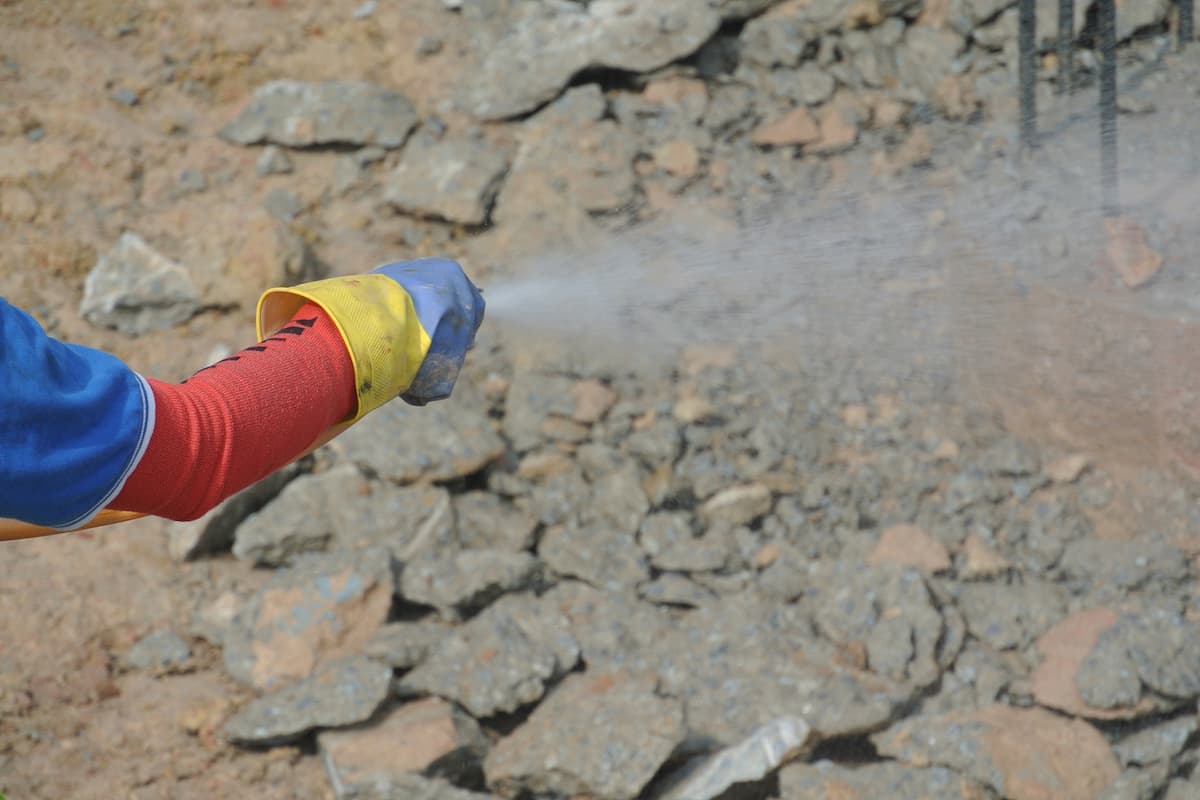Are Termite Warranties Worth It?
Termites are a common problem for wood-framed homes and the damage they can cause is immense.
So how do you know if a termite warranty is actually worth it or not?
If your home has had a history of termites, a termite warranty is well worth the cost. Damage from termites can cost tens of thousands of dollars in severe cases, much less than a warranty and annual treatments.
When And Why To Purchase A Termite Warranty

A termite warranty is a type of protection that guarantees your home against termite infestations and any damages they cause.
They must be issued by a licensed pest professional and include an agreement for ongoing termite prevention, inspection, and maintenance.
When buying a home, you can request a termite warranty from the seller, or purchase one yourself to protect your home.
Termite warranties may be required in some states, but aren’t in others during the home-buying process.
Homeowners’ insurance does not cover termite infestations or damage. In most cases, insurance companies consider termites inevitable and therefore don’t cover the damages in their policies.
To determine whether a termite warranty is worth it or not, the first thing you need to look at is the cost of the warranty and compare it to the cost of termite damage and removal.
The yearly price of a termite warranty averages between $300 and $400.
The cost to repair termite damage in the US averages around $3,000, but extensive damage can raise that price point to ten or even a hundred thousand dollars.
Since this isn’t covered by homeowners insurance, you would be on the hook for these costly repairs. Also, remember that this doesn’t include hiring a professional to exterminate the termite infestation.
Just on cost alone, a termite warranty is well worth the yearly price.
It’s also worth considering that if you purchase a home with a termite warranty, the previous homeowners had that warranty in place for a reason.
Homes with a history of termite infestations are likely to have them come back.
Ongoing agreements are also cheaper than starting a new one. If you have one in place but don’t renew it, you’ll have to pay for an inspection and treatment like you just started.
This costs much more than the normal yearly warranty price tag.
The home may also have unforeseen damages that the warranty will cover if they are discovered after the sale.
Always have a pest expert and a professional home inspector verify that there is no termite damage or active infestations in a home before buying it.
Termite warranties aren’t always the right choice for homeowners though. Not having a warranty or an ongoing maintenance plan is a risk, but for some homeowners, it isn’t as big of a risk.
Termites are more prevalent in southern regions where it’s warmer. A general rule of thumb is that the warmer it is, the higher the risk of a termite infestation.
For homeowners who live in northern regions, the risk may be low enough that a termite warranty just isn’t worth it.
What King Of Ongoing Prevention Methods Exist For Termites?
Ongoing prevention is part of a termite warranty and is your best option for keeping termites out of your home.
Annual inspections by pest experts can help verify that a termite colony hasn’t moved into your home. These are included in warranties.
Bait stations may also be included in your termite warranty. These can be set up and active all year long.
Termite bait stations are complex traps that attract and then kill off termites before they reach your home. They’re affordable and help you avoid using harsh chemicals inside your home.
Annual treatments will kill off any colonies that are trying to get started in your home. If you’re particularly at risk for termites, you can up these treatments to every six months.
You can also do some things on your own to help minimize the risk of a termite infestation.
Sealing up cracks in walls, baseboards, and your home’s foundation is a good place to start.
Spray borate on any wood surfaces in your home when you do repairs. This chemical will seep into the wood and keep termites from eating it.
Termites also don’t eat pressure-treated wood, so if you make any repairs or build new projects, always use pressure-treated timbers.
Fix leaks and get rid of as much moisture in your home as possible. Like other insects, moisture and an easy water source will attract them into your home.
Keep wood away from the soil outside. An 18-inch separation is all it takes to help discourage termites from attacking.
Finally, decluttering your home can be effective at preventing termites. While they eat wood, they’ll also eat any other form of cellulose they can find.
This includes cardboard, paper, and wood piles. Each of those tends to stack up inside the home, whether it be old magazines and newspapers or Amazon delivery boxes.
How Long Do Termite Treatments Last?

Annual inspections and treatments are all well and good, but how long can you expect termite treatments to keep them away?
In general, it depends on the kind of treatment.
Liquid treatments, on average, last for five years. A pest professional essentially digs a trench around your home and treats the area with chemicals to form a barrier to termites.
While effective, any gaps in the barrier can allow termites into your home. The treatment may also last less than five years for several reasons like excessive rainfall.
Annual inspections help minimize the risk of the treatment not being effective for the full duration.
Bait stations are just as effective as liquid treatments, but must be regularly maintained. With a termite warranty, a pest expert installs, monitors, and maintains the stations.
This protection lasts as long as the stations are well-maintained and strategically placed around your property.
How long a treatment lasts can be affected by a few things. The three main concerns are the type of termite you have in the area, the size of an active colony, and the environment around your home.
Different termite species react differently to the chemical treatments and bait stations. A professional will be able to employ the proper plan to keep the native termites out.
The larger a termite colony, the longer it takes to eliminate them. Poisons are effective, but it takes time to spread through a colony. The more termites there are, the longer it takes before they are all infected and eliminated.
How your home is set up is also a major component. If the wood parts of the home are easy to access, the treatment will be more effective. The harder it is to access the wood framing and parts of the home, the less effective the treatment will be.
Conclusion
Termite warranties are a much cheaper yearly investment than repairing termite damage or paying an exterminator to get rid of them. For homeowners with a high-risk level, warranties are well worth the price.
Keep in mind that termites aren’t covered under almost any homeowners insurance policies. If an infestation gets in and wrecks havoc, you’ll be on the hook for the full repair cost.
